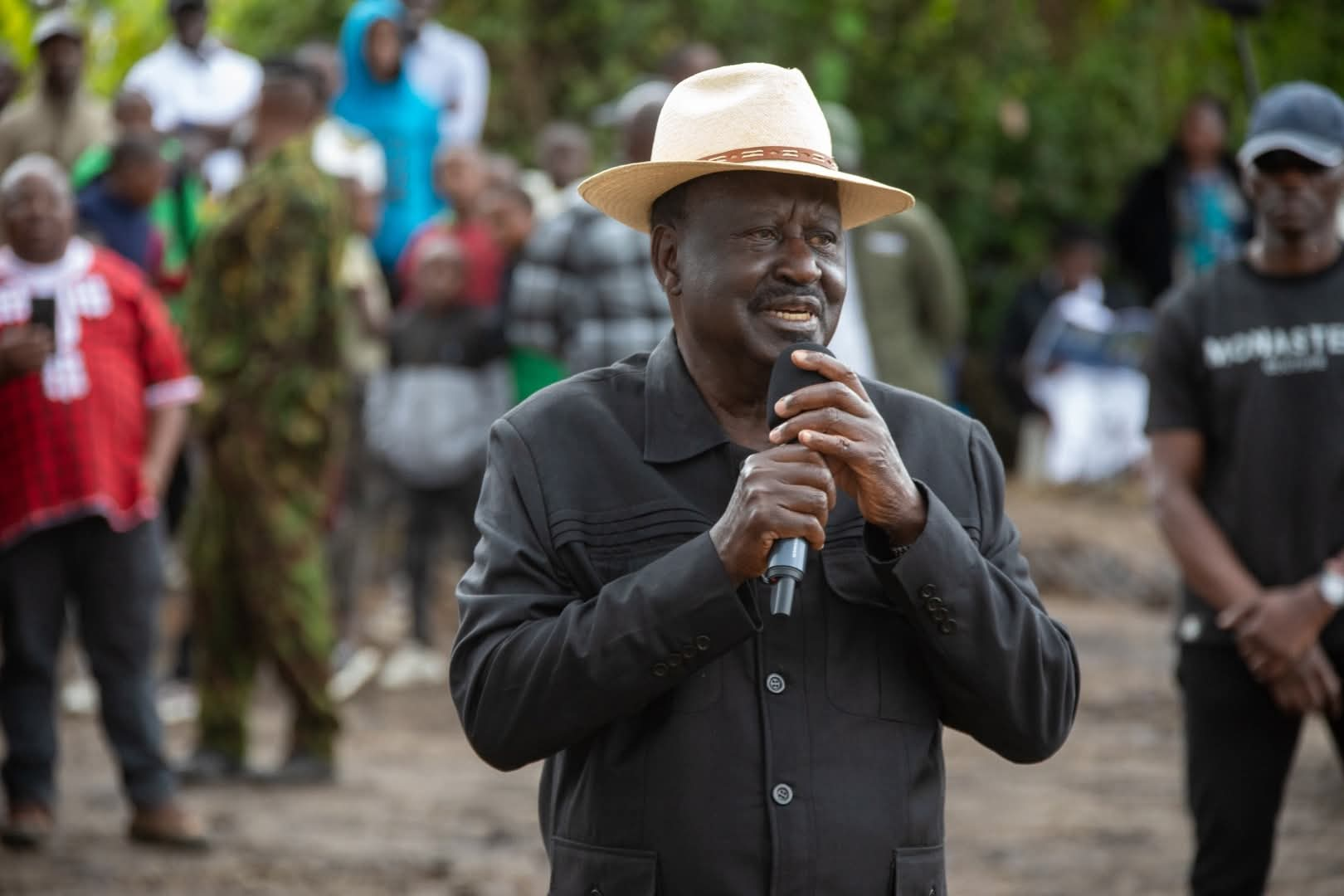
 Former prime minister Raila Odinga during an event in Bomet in July 12, 2025/COURTESY
Former prime minister Raila Odinga during an event in Bomet in July 12, 2025/COURTESYSpeaking Saturday during a funeral service in Bomet, the ODM leader also called for inclusive representation instead of just intergenerational, with each of the 47 counties nominating 40 delegates.
"This should not just be intergenerational, it must be representative of Kenya’s full diversity,” he said.
According to Raila, 50 per cent must be youth while the remaining 50 per cent should include middle-aged and elderly citizens from various walks of life.
"I have proposed that each county should send 40 people- 20 be youth and 20 others drawn from elders, women, persons with disabilities, farmers, businesspeople, and civil society," he said.
"Na nimependekeza ya kwamba tuanze hii mazungumzo mwezi ujao."
He emphasised that it is only through such a broad-based dialogue that the country’s political and social crisis can be addressed.
According to Raila, the ongoing protests, which he claimed are led by youth, are driven by legitimate frustrations that must be heard, not suppressed.
"These young people are not just protesting for the sake of it. They are our children. We must listen to them and talk,” he added.
He warned that failure to address public anger could have serious consequences.
“We do not want to head into the 2027 elections with even more bitterness. Hasira ni hasara,” he said.
Raila also strongly rejected the 'Ruto must go' idea, stating that merely replacing President Ruto would not solve the nation’s problems.
“Ruto must go is not a solution. Even if you put Gachagua there, nothing will change unless we deal with the root causes,” he noted.
He further criticised former Deputy President Rigathi Gachagua’s remarks on power “shares,” reaffirming that Kenya belongs to all.
“Kenya is for every Kenyan, Luo, Kikuyu, Somali, Kalenjin, Mijikenda, or Maasai. No one owns this country. We must build it together or watch it fall apart," he said.
Raila first proposed the conclave last week during the Saba Saba day, noting its mandate would include crafting “irreducible reforms” to address police brutality, judicial inefficiency, corruption, and youth unemployment.
He recommended subjecting its outcomes to a public referendum, affirming citizens’ authority over national direction.
Some legislators have since challenged the proposal, arguing that ballot-driven change, not dialogue, is the answer.
Former Deputy President Rigathi Gachagua described the conclave idea as a tactic to circumvent electoral accountability, urging citizens instead to prepare for meaningful participation at the ballot box in 2027.














